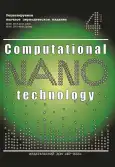Aspects of modernization of ITSM class information system in software development companies: microservice architecture of the search module of the system
- Authors: Smirnov M.V.1, Mityakov E.S.1, Makhov A.G.2
-
Affiliations:
- MIREA – Russian Technological University
- NetCracker LLC
- Issue: Vol 11, No 4 (2024)
- Pages: 146-153
- Section: INFORMATICS AND INFORMATION PROCESSING
- URL: https://bakhtiniada.ru/2313-223X/article/view/282571
- DOI: https://doi.org/10.33693/2313-223X-2024-11-4-146-153
- EDN: https://elibrary.ru/HDSSDE
- ID: 282571
Cite item
Abstract
The article considers the problem of practical modernization of IT service management system in software development companies. This problem has recently been widely considered in the works of world scientists [1–5; 13–15]. To study the needs of modernization, typical business process diagrams of the developer company (BPMN 2.0) are given. Based on the analysis of the business processes and the shortcomings identified in them, the components of an architectural microservice solution for modernization in the area of incident handling are developed and given in schematic form. As a result, the microservice architecture of the search module of the ITSM system is obtained, which is given in the form of a model with explanations in the article. As a development of the research, it is planned to carry out pilot tests of the developed architecture in solving a number of applied tasks with subsequent evaluation of the obtained results. The proposed modernization variant is characterized by universality and can be considered as a solution in each case of ITSM use in a production enterprise. The article will be useful for IT-specialists implementing and maintaining ITSM systems.
Full Text
##article.viewOnOriginalSite##About the authors
Mikhail V. Smirnov
MIREA – Russian Technological University
Author for correspondence.
Email: mikhaelsmirnov@gmail.com
ORCID iD: 0000-0001-5018-2963
SPIN-code: 4990-7320
Cand. Sci. (Econ.); associate professor, KB-9 Department
Russian Federation, MoscowEvgenii S. Mityakov
MIREA – Russian Technological University
Email: mityakov@mirea.ru
ORCID iD: 0000-0001-6579-0988
SPIN-code: 5691-8947
Dr. Sci. (Econ.), Professor, KB-9 Department
Russian Federation, MoscowAnton G. Makhov
NetCracker LLC
Email: antonmahov@yandex.ru
ORCID iD: 0009-0003-0107-6293
software engineer
Russian Federation, MoscowReferences
- Iden J., Eikebrokk T.R. Implementing IT Service Management: A systematic literature review. International Journal of Information Management. 2013. No. 33. Pp. 512–523. doi: 10.1016/j.ijinfomgt.2013.01.004.
- MacLean D., Titah R. Implementation and impacts of IT Service Management in the IT function. International Journal of Information Management. 2023. No. 70 (3). P. 102628. doi: 10.1016/j.ijinfomgt.2023.102628.
- Al-Hawari F., Barham H. A machine learning based help desk system for IT service management. Journal of King Saud University. Computer and Information Sciences. 2021. Vol. 33. No. 6. Pp. 702–718. doi: 10.1016/j.jksuci.2019.04.001.
- Sardjono W., Legowo N., Fairuszabadi A. Leveraging IT service management to enhance helpdesk service quality in handling consumer complaints. Journal of Logistics, Informatics and Service Science. 2024. Vol. 11. No. 4. Pp. 299–312. doi: 10.33168/JLISS.2024.0418.
- Sarwar M.I., Abbas Q., Alyas T. et al. Digital transformation of public sector governance with IT service management – a pilot study. IEEE Access. 2023. Vol. 11. Pp. 6490–6512. doi: 10.1109/ACCESS.2023.3237550.
- Grishaeva S.A. Development and implementation of service management system in IT-company for compliance with international standard ISO/IEC 20000-1:2018. In: International Conference on Quality Management, Transport and Information Security, Information Technologies (IT&QM&IS). 2022. Pp. 151–154. doi: 10.1109/ITQMIS56172.2022.9976802.
- Soroka E.G. To the issue of implementation of ITIL/ITSM concept in the Russian it-industry. Bulletin of the Siberian Institute of Business and Information Technologies. 2014. Vol. 12. No. 4. Pp. 75–79. (In Rus.)
- Anisiforov A.B. The most important problems arising in the course of digital transformation of enterprises and approaches to their solution. Scientific Journal of National Research University ITMO. Series: Economics and Environmental Management. 2024. No. 3. Pp. 38–47. (In Rus.). doi: 10.17586/2310-1172-2024-17-3-38-48.
- Sazanova L.A. Development and analysis of the business process model of incident management using IDEF-modeling tools. Modeling, Optimization and Information Technologies. 2023. Vol. 11. No. 3. Pp. 75–79. (In Rus.). doi: 10.26102/2310-6018/2023.42.3.002.
- Golub I.S., Glagolev V.A. Comparison of CI/CD tool of two services JENKINS and GILAB. Postulate. 2021. No. 2 (64). (In Rus.). EDN: TBDZEU
- Tarmosina A.S., Pchelintsev A.N. Implementation of the GIT-company version control system. Synergy of Sciences. 2017. No. 18. Pp. 390–395. (In Rus.). EDN: ZXQQTF.
- Feoktistov I.A. Improving application management in Kubernetes: Deployment capabilities and strategies. Current Research. 2023. No. 25 (155). Pp. 39-44. (In Rus.). URL: https://apni.ru/article/6587-sovershenstvovanie-upravleniya-prilozheniyami.
- Mikryukov A.A., Kuular A.V. Development of the model of incident management in the enterprise information system based on three-level architecture using key (relevant) metrics. Open Education. 2020. No. 24 (3). Pp. 78–86. (In Rus.). doi: 10.21686/1818-4243-2020-3-78-86.
- Blinnikova A.V., Nesterova Y.O. Incident management in ITSM using artificial intelligence. Strategies and Innovations. University Bulletin. 2020. No. 6. Pp. 36–40. (In Rus.). doi: 10.26425/1816-4277-2020-6-36-40.
- Sterlyagov S.P., Bezmaternykh N.A. Perfection of activity of information technology department of tax inspection on the basis of itsm/itil methodology. Naukovedenie. 2017. Vol. 9. No. 3. (In Rus.). URL: https://naukovedenie.ru/PDF/116EVN317.pdf
Supplementary files













